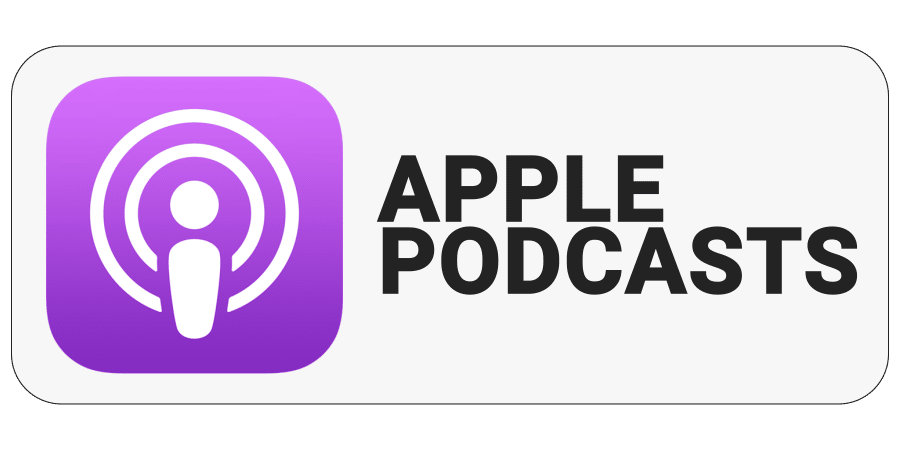Welcome to the
Well Connected
Relationships Podcast
Together we explore new ways to relate to yourself and others that will change your relationships. For good. Tune in for monthly episodes filled with expert tips, actionable advice and proven techniques you can use to build more resilient relationships that are grounded in wisdom and compassion.
You can check out our latest episode (a new one pops up at least every month) and all of the previous episodes that we have released. If you’re already a podcast listener, just head over to Apple Podcasts, Google Podcasts, Stitcher, Spotify and TuneIn Radio to subscribe and download all of our episodes. And if you’re new to podcasts or don’t have an app, just click HERE to listen in.
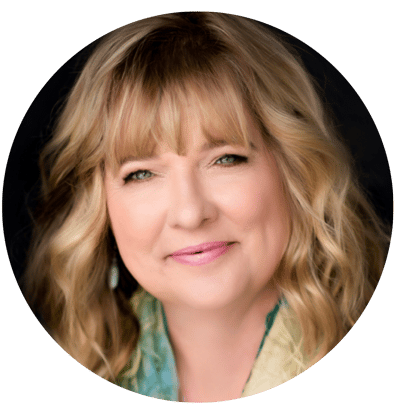
Episode #27: Mindfulness and Compassion – Choosing the Right “Medicine” at the Right Time
When we find something that works for us, we tend to be comforted by the idea that we can always use that strategy to get through life’s challenges. But it isn’t always that easy. In some situations those same strategies can lead to disappointment or feeling worse. What to do then? Reach into the toolbox for a different tool. Holding our practices lightly – with humility, curiosity and flexibility – will help us find the right mindfulness and compassion-based “medicine” for us, in the right dose, at the right time.
Show Notes
- Why it’s our human nature to become attached to mindfulness and compassion practices that we’ve used to feel safe or alleviate our pain – and how that can lead to disappointment or feeling worse instead. (1:27)
- The importance of holding your practices lightly – what that means and how doing so can make them even more useful and effective. (2:19)
- How mindfulness and compassion are a lot like a screwdriver! (2:41)
- Michelle’s experience of being in agonizing pain on a camping trip in the middle of nowhere, her harrowing transport to the hospital, and the trauma response she had in the midst of an ER overflowing with patients but short on staff. (3:24)
- Why practicing self-compassion was surprisingly a firm “no” for her in that moment – and why it wasn’t the medicine she needed. (6:39)
- The practice Michelle used instead of self-compassion to carry her through (which you can use, too) – and how self-compassionate it actually turned out to be. (6:47)
- How gratitude helped her know she was okay, even when she wasn’t okay. (8:28)
- How the three components of self-compassion, as defined by Dr. Kristin Neff, were actually present in the practice she chose, even though she wasn’t directing compassion toward herself. (9:45)
- The importance of practice in building your own toolbox, and how you can trust yourself to find just the right tool when you need it. (11:25)
- An exciting announcement about Michelle’s new book, Compassion for Couples, and where you can find it. (12:27)

Episode #26: Holiday Harmony – Having Peace, Love and Boundaries with Others
The holidays often mean increased time spent with others, and that’s a big reason we look forward to or dread them (or both!) In this episode, we explored how to work with feelings of holiday dread we may experience by opening up to our fears, becoming curious about our underlying needs and wants, holding those needs in the context of our shared humanity and tending to ourselves with kindness.
We also covered how to savor the feelings of joy and connectedness you do feel at this hectic time of year, wonderful ways to feel connected to others regardless of your relationship status, and how to invite more joy, generosity, kindness and love into your life at the holidays (or any time).
Show Notes
- Relationship dynamics that can drive a sense of dread at this time of year. (:48)
- How to identify what may be making you feel more sad, anxious, afraid or overwhelmed at the holidays – and how to validate and comfort yourself in those tender moments. (1:36)
- How to recognize that underneath feelings of holiday dread, there is something we really value and want – and tend to those needs with kindness. (2:51)
- The quintessential question in self-compassion to ask yourself. (The answer will help you offer yourself attention and care.) (5:01)
- How to use self-compassion and mindfulness to navigate any dread that arises for you at the holidays (or any time). (5:20)
- Ways to make the most of the moments of ease, rest and joy that are available to you during hectic times. (7:44)
- What to remember when you need to say “no” to something or someone – and how to do it with grace. (8:16)
- How to set healthy boundaries with others from a place of clarity and kindness (instead of a place of blame, fear, or ego). (9:02)
- How to set up resources to support yourself, including what to ask for from a partner or friend. (10:01)
- A favorite piece of advice from Rick Hanson to help you notice, savor and take in feelings of joy and connectedness when they arise. (13:00)
- A surefire way to invite more joy, generosity, kindness and love into your life – and it feels good, too. (13:13)
- A heartfelt holiday message from me to you. (14:36)
- $24.99 Introductory Program in Mindfulness & Compassion Practices: UCSD Center for Mindfulness
- Dr. Kristin Neff’s book Fierce Self-Compassion + more on fierce compassion from Kristin Neff here.
- 3 Steps for Taking in the Good with Rick Hanson
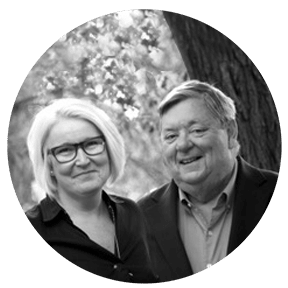
Episode #25: The Surprising Effects of Cultivating Compassion IN your Relationship (even if you already have individual practices)
with Dawn MacDonald and Dr. Michael McIntyre
When accomplished compassion teachers, researchers and experts Dawn MacDonald and Dr. Michael McIntyre pull back the curtain on the real-life challenges and benefits of practicing compassion in their own relationship, it makes for a podcast you won’t want to miss!
We explored how the busy parents of six practice compassion to create the space for deeper connection AND shared so many connection-boosters (and busters) like not forcing sameness, asking for/accepting help with gratitude vs. acquiescence, identifying your relationship’s shared values, what to do when your partner sees things differently than you, and creating safety through kindness.Show Notes
- How Dawn and Michael took the Compassion for Couples program as a rare opportunity to focus on them as a couple – and what changed for them as a result. (3:46)
- What creating “shared phrases” for your relationship does to unify you as a team. (6:03)
- The intention Dawn and Michael set as a couple that’s based on their shared value of kindness – and how identifying your shared values can deepen your connection with your partner. (6:51)
- How all of us bring patterns from our family of origin into our relationships that might not serve us now – and what to do instead. (11:52)
- How Dawn and Michael navigate their default patterns of needing to be in charge vs. needing to be independent – and you can, too. (12:51)
- How asking for what you need is more welcome and powerful than you might think. (13:04)
- The challenge of accepting help when it is offered – and the important difference between doing it with gratitude vs. acquiescence. (15:02)
- The danger of trying to fix the conditions that make life uncomfortable for our partner – and what to do instead. (18:17)
- What we have to feel from our partner before we can listen to their advice on how to fix a problem. (19:20)
- What it means when Dawn and Michael say they have “different mental maps” – and what to do if you and your partner do too. (20:06)
- How couples tend to think they have to have “sameness” to have connection – and what works a whole lot better. (23:28)
- Michelle’s analogy of a fire that reveals the ideal balance of space and connectedness for a relationship to “keep the fire going.” (23:50)
- How to see if something you’re doing will feel kind to your partner (or not!) (36:05)
- How making a vow about how you would like to live doesn’t necessarily mean having to do things that are hard or complex – it can be simple. (39:46)
- Why this podcast made Dawn’s cheeks so sore. (45:22)
- Visit Dawn and Michael’s website
- Enroll in our Compassion for Couples program
- Pre-order my new book: Compassion for Couples: Building the Skills of Loving Connection
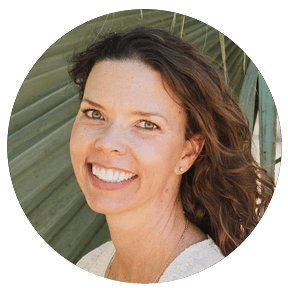
Episode #24: Making Compassion Easy & Effective For When It's Needed Most with Sara Schairer
I sat down with Sara Schairer who is founder of the nonprofit Compassion-It and a certified teacher of the Compassion Cultivation Training Program, developed at Stanford University. Sara has a talent for making compassion easy and effective, and we talked about how to do that more intentionally now, when it’s so urgently needed.
We covered why compassion is critical for us to thrive and be happy (both personally and collectively), what often stops people from compassion, and the surprisingly easy ways to practice it that feel great, too!
Show Notes
- Why compassion is not just important for our personal wellbeing, but also for our collective survival. (1:47)
- The little known truth that Darwin’s later work was not about survival of the fittest, but survival of the cooperative. (2:31)
- Why Michelle says the same is true for our personal relationships. (2:55)
- Why compassion seems harder to practice than it really is. (3:36)
- What happens when people confuse empathy with compassion. (4:45)
- Why showing up with kindness feels much better to you and other people than trying to fix someone’s situation does. (5:04)
- How telling someone to “take the nail out of their forehead” doesn’t offer the relief you think it will – and what works better. (6:35)
- How a woman disciplining her 3 kids at an airport taught Michelle that just showing up with kindness can shift everything – and is so much easier than we think. (16:27)
- Simple things we can all do to practice compassion on the daily. (18:32)
- When sending someone a cat video counts as compassion. (21:29)
- When setting a boundary or standing up for yourself or someone else counts as compassion – and a story about Sara’s young daughter doing just that. (30:30)
- What Sara sincerely hopes happens when you read her new book that comes out in January. (33:55)
- Sara’s TEDx Talk
- Sara’s Compassion-It Website where you can sign up to get free resources and an announcement when her book is released.
- A Mindful Guide To Be More Compassionate from Mindful Magazine.
- How to Have Compassion for Others No Matter What They Do – an interview with Dr. Rick Hanson

Episode #23: Communicating with Mindfulness, Compassion & Big T Truth with Dr. Mitch Abblett
I sat down with licensed psychologist, Dr. Mitch Abblett, who is the author of several mindfulness-based books and whose work has been featured in Psychology Today, Mindful Magazine, Newsweek, and the New York Times. Through his podcast and teachings, he helps people authentically, compassionately and courageously connect with the true prizes in one another.
Together we explored mindful communication, why and how we lie, and why it’s important to practice telling what Mitch calls Big T Truth. We’ll also touch on how mindfulness can help us with Big T Truth and healthy communication.
Show Notes
- What Big T Truth is – and why it’s the type of truth we tend to lie about. (3:04)
- How being able to speak our present moment truth creates connection and moments of juicy possibility in our relationships. (5:39)
- What Big T truths require from us (and why it’s worth it!) (6:18)
- What Brene Brown’s quote about oversharing tells us about why it’s not appropriate to speak Big T truths ALL the time. (7:43)
- Mitch’s R.A.Z.R. method for knowing when to move into Big T truth (and when not to.) (9:31)
- How opening to a situation with curiosity supports mindful, healthy communications. (13:27)
- A powerful question to ask yourself while you W.A.I.T. to speak. (15:17)
- What Mitch learned about healthy communications from playing the trombone as a kid. (15:57)
- The difference between a mindful rest between pieces of conversation and what is actually “nexting” for control. (17:14)
- Why it’s so hard for humans not to lie. (19:13)
- How our world makes it too easy to “duck and cover” vs. speaking truth. (21:06)
- How our unconscious habits can get the way of us having good communication and connection with others – and how to free ourselves from them. (23:16)
- How to practice mindful communication techniques that really work to create connection. (25:38)
- Why self-compassion is such an important element of owning our mistakes and having honest communication around them. (38:37)
- Why the world needs more Big T Truth telling right now. (39:18)
- What you already know to be true about mindfulness. (41:24)
- Wise Compassion’s new Mindful Self-Compassion short-course beginning June 21st.
- Mitch’s book Prizeworthy: How to Meaningfully Connect, Build Character, and Unlock the Potential of Every Child
- Mitch’s book The Five Hurdles to Happiness and the Mindful Path to Overcoming Them

Podcast Episode #22: Cultivating Soft, Wise Resilience with Micki Fine
Micki is the founder of Mindful Living, offering certified Mindfulness-Based Stress Reduction instruction through her private practice, Rice University, MD Anderson and the Jung Center. She is author of The Need to Please: Mindfulness Skills to Gain Freedom from People Pleasing and Approval Seeking and her children’s book May All People and Pigs Be Happy. Her new course Equanimity: Greeting the Moment Wholeheartedly begins soon.
Show Notes
Micki’s favorite definition of equanimity, what it is and how it makes relationships better. (1:59)
How our human nature to push away what we don’t like and grasp at what we do is also one of the greatest sources of our stress and suffering – and how moving toward equanimity changes that. (3:28)
What you might think you don’t like about equanimity vs. what it really has to offer. (4:05)
A mantra you can use to meet your reactivity and help you open to what is and begin to work with it. (6:20)
What a fly on Michelle’s cheek taught her about meeting non-equanimity with equanimity – and how it made her chuckle, too. (6:40)
The enormous things we learn about our lives, ourselves and our perceptions when we can accept and see clearly “what is.” (10:10)
The importance of taking a longer view than our society encourages when it comes to working with our distress. (14:00)
The story that makes Micki cry every time she tells it, about an astronaut who sees the mountains of war-torn Bosnia from space – and what it can teach us all about taking the long view. (15:03)
The first step to seeing more clearly what’s going on underneath our reactivity and feeling more grounded and loving. (16:42)
Three kind things to say to yourself in those difficult moments. (20:03)
A story Micki tells about “the farmer who doesn’t know.” (21:13)
What we must learn about our thoughts to help us suffer less. (23:16)
A powerful practice to calm your reactivity and help you trust the unfolding of any situation. (24:32)
How practicing equanimity for ourselves impacts the people and world around us in powerful ways. (27:28)
How practicing equanimity can be sort of like eating a pancake. (33:19)
Micki’s new course Equanimity: Greeting the Moment Wholeheartedly that begins on May 5th
The Need to Please book by Micki Fine
The Dharma of Modern Mindfulness book by Beth Mulligan

Podcast Episode #21: How to Work with Distress over Ukraine (or other challenging situations) with Dr. Janina Scarlet
I sat down with Ukrainian-born psychologist, author, TEDx speaker and self-proclaimed geek, Dr. Janina Scarlet, whose innovative Superhero Therapy work earned her the Eleanor Roosevelt Human Rights Award by the United Nations Association and has been featured by Yahoo, BBC, NPR, Sunday Times, CNN, CW, ABC, The New York Times, Forbes and many others.
Having survived Chernobyl radiation and persecution, Janina immigrated to the U.S. at the age of 12. She is the author of 10 books, including her latest “It Shouldn’t Be This Way” which offers a timely (and timeless) approach to accepting the things we just can’t change.
Together we explored what the current situation in Ukraine has to teach us about how we are wired as humans, why many of us without any personal connection to Ukraine are suffering as a result of its attack, and what we can do to make a difference.
Show Notes
- Why you might be suffering because of the invasion of Ukraine – even if you’ve never been there and don’t know anyone there. (2:56)
What Ukraine has to teach us about being human and how we are wired. (3:46)
The silver lining to the discomfort we are collectively feeling. (4:01)
Something each one of us can do to self-soothe when our discomfort is too much to bear. (4:12)
What growing up with an illusion of control tricks our brains into believing – and what’s actually true. (5:47)
What we are tempted to do when something bad happens that doesn’t offer us (or anyone else) relief. (6:00)
What’s actually helpful to do to support ourselves and others when bad things happen. (7:46)
When gentle compassion is the best choice and when fierce compassion is better. (9:18)
Why practicing compassion is never weak – it is always the strongest response. (9:45)
What highly empathetic people in their own distress should do as a first step to helping others. (10:49)
Practical suggestions for how to help make a real difference in our lives, our communities and the world. (12:48)
Examples of how people in Janina’s life have made her feel seen and cared for while her home country is in distress. (15:39)
The awesome power of kindness and the ripple effects it can have around the globe. (17:35)
- Dr. Janina Scarlet’s Book It Shouldn’t Be This Way: Learning to Accept the Things You Just Can’t Change.
- Poems for Peace: Ukraine 2022 featuring Naomi Shihab Nye, Dr. Janina Scarlet, Dr. Steve Hickman, Michelle Becker and Kristine Mackenzie-Janson.
- A directory of advice, tools & links for many ways to help Ukraine (not just donating money): https://supportukrainenow.org

Podcast Episode #20: Creating Calm in the Midst of Chaos (in Life & Relationships) with Julie Potiker
I sat down with mindfulness expert, Julie Potiker, whose brilliant work has been featured by The Oprah Magazine, NBC, CBS, Fox and many others. Through her Mindful Methods for Life program offerings, and her book — “Life Falls Apart, but You Don’t Have To: Mindful Methods for Staying Calm in the Midst of Chaos” — Julie helps others bring more peace and wellness into their lives.
Together we explored how, as humans, we are wired with a need to be comforted and soothed in times of conflict, stress or distress — and the life- and relationship-changing discovery that we don’t have to rely on other people to do that for us. With tips from Julie’s forthcoming new book “SNAP: Out Of Chaos and Into Calmness” we can give that gift to ourselves, and our relationships benefit.
Show Notes
- Julie’s relatable personal story of how she moved from being a self-professed stressed out “trainwreck” mom of three young children with ADHD and caregiver to aging parents, to a beacon of resilience using the techniques she now teaches. (1:43)
- What a “happiness toolbox” is, what building one will do for you and your relationships — and ideas for what to put in yours!) (5:14)
- Self-talk that soothes: A conversation Julie often has with herself that you can also use to feel better in the midst of stress. (6:33)
- How we (and our relationships) benefit when we recognize that we’re not dependent on other people being present, kind or happy before we can feel better in the face of stress or distress. (7:29)
- Why managing stress in our relationships begins with cultivating our own ability to get out of reactivity and moving into a state of responsiveness. (8:08)
- How calming ourselves works in the amygdala and prefrontal cortex of our brains – and why that’s important. (12:12)
- Tools you can use to not be so caught in reactivity and waves of emotions, but to find a little solidness in the midst of a storm. (16:36)
- Where to start: the quickest thing you can do to calm yourself in a reactive moment and trigger a helpful release of feel-good hormones. (18:15)
- A powerful next step that works for every single thing life throws at you. (18:42)
- How to change your mood by replacing what is going on with something that brings you joy. (18:45)
- One extra step you can take to “seal in” the joy, comfort and peace you create. (20:24)
- How to apply Julie’s SNAP method with others —from minor challenges in relationships that are on solid ground to difficult relationships that cause tremendous suffering. (26:29)
- The power and control we have (but don’t always recognize) to change up our mood no matter what is happening around us. (32:08)
- How to change your mood by opening to and accepting your emotions vs. bypassing them. (32:24)
- Julie’s Book Live Falls Apart, but You Don’t Have To
- Julie’s Website: Mindfulmethodsforlife.com
- Rick Hanson’s Book: Just One Thing

Podcast Episode #19: Cultivating Compassion in Our Relationships – the One Resolution We All Need
If your spirit of compassion was challenged this year (and whose wasn’t), Episode #19 of our Well Connected Relationship podcast is full of simple, sustainable practices you can use to intentionally cultivate it this year. We explore why cultivating compassion in our relationships is the one New Year’s resolution we all need and why it feels as good to give as it does to receive.
Show Notes
How taking a shower or tasting a peach is a bit like practicing compassion. (:52)
How compassion is related to but slightly different from loving kindness – and why it matters. (2:06)
What happens when the sunshine of compassion meets the tears of suffering. (2:22)
A loving kindness practice that will prime your heart for expanding your capacity for compassion. (2:46)
The practice of using yourself to sense and understand what someone else who is suffering needs from you. (3:28)
Just like we have different love languages, how people like to receive compassion isn’t always the same. (5:36)
A practice to become familiar with the nature of suffering – ours and others – while not becoming overwhelmed by it. (7:45)
How to build the foundation of loving-kindness in your relationships. (8:10)
Why compassion feels as good to give as it does to receive. (11:29)
- A Fearless Heart book by Thupten Jinpa https://compassionit.com
- A Year of Living with More Compassion book by Richard Fields

Podcast Episode #18: The Bridge Between Self-Compassion & Compassion (and How to End the Tug of War Between Whose Needs Matter)
In Episode #18, part 2 of our 3-part series on practicing compassion in relationships, we explore an area where I find some people in relationships get stuck — bridging from compassion for ourselves to compassion for our partner. We look at the key roles common humanity and humility play in making sure both partners’ needs are equally tended to. If you’ve ever felt like there’s a “tug of war” going on between getting your own needs met and tending to the needs of others, I hope you’ll listen!
Show Notes
-
Why, as wonderful as self-compassion is, on it’s own it is incomplete. (:48)
-
How tending to our own needs in relationships is also wonderful, necessary and incomplete. (1:10)
-
What opening to our own struggles and difficulties teaches us about the nature of suffering and how it allows us to better identify suffering in others. (2:25)
-
What recognizing common humanity teaches us about the needs of others. (4:20)
-
What happens when we get overly attached to our own suffering. (6:10)
-
Why we often get stuck in an invisible tug of war between getting our own needs met and meeting the needs of others. (6:50)
-
The secret sauce that allows us to move more easily from self-compassion to compassion for each other — and why it feels like relief to both partners! (6:23)
- A Fearless Heart: How the Courage to Be Compassionate Can Transform Our Lives book by Thupten Jinpa, PhD
- How Humility Will Make You The Greatest Person Ever article by Greater Good Magazine
- What Is Humility? The Power of Humility With 5 Practical Exercises article on PositivePsychology.com

Podcast Episode #17: How Self-Compassion Supports Relationships (and isn’t selfish!)
Many of us have been trained not to have needs, and if we do have them not to focus on them. But that’s not healthy for ourselves, our partners or our relationships. That’s why in Podcast Episode #17, we explore how tending to our own needs is not only not selfish … it actually benefits our partner and our relationship, too. We also explore how it can naturally unfold through a process of seeing things as they are (mindfulness), remembering we are not alone (common humanity) and following through with care (kindness).
Show Notes
- One of the biggest barriers to practicing self-compassion in our relationships – and the importance of breaking through it. (1:00)
- Why it’s problematic for us AND our partners when we are solely “other-focused” in relationships and don’t tend to our own needs. (1:44)
- How we unintentionally teach people that our needs don’t need to be considered. (2:54)
- What happens when the pendulum swings too far in the other direction — and we are overly dependent on others to meet our needs. (4:16)
- The other big barrier to practicing self-compassion and how subscribing to it can wreak unintentional havoc in our relationships. (5:02)
- An old East Indian saying that illustrates when it’s noble and when it’s foolhardy to help someone. (6:00)
- How self-compassion naturally invites compassion from others. (6:34)
- Why learning to care for ourselves with self-compassion feels so empowering AND benefits our relationships. (6:55)
- The three components of self-compassion from researcher, Dr. Kristin Neff. (8:09)
- The difference between being kind and being nice. (10:52)
- A scenario of compassion for a friend that illustrates how mindfulness, common humanity, and kindness can unfold in real life (and how to make it your own). (12:25)
- A simple process we can all use to grow in self-compassion using the same scenario with a simple twist.(16:58)
- How expanding our capacity to care for ourselves also expands our capacity to form well connected relationships with others. (21:00)
- Self-Compassion for Dummies book by Steve Hickman
- Flerce Self-Compassion book by Dr. Kristin Neff
- Mindful Path to Self-Compassion book by Dr, Christopher Germer
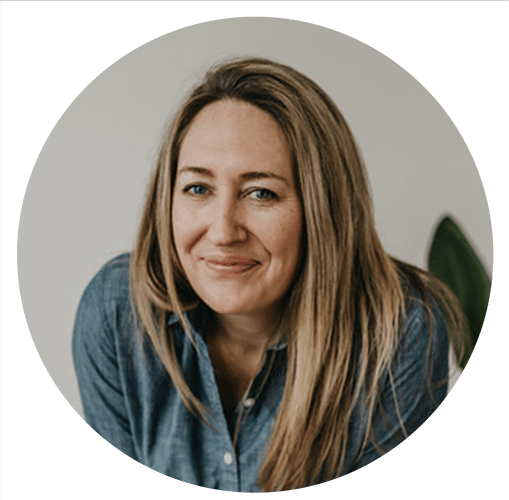
Podcast Episode #16: From Empty to Effective When Caring for Others with Lisa Baylis
Having relationships inevitably includes caring for others, whether that means our spouse or partner, a child, aging parents, friends or even clients. But now, when we’ve been tending to so much, for so long, it’s common to feel emotionally tired and burned out. And the people we care for are also burned out and in need of extra care. How then, do we care for ourselves and each other, when we need it most yet also have the least to give?
My guest, self-compassion teacher, Lisa Baylis, has been sharing wellbeing strategies with caregivers for 20+ years. The author of Self-Compassion for Educators and creator of the AWE Method — Awakening Wellbeing for Educators, her message is for all of us who care for others.
Show Notes
- Why it might be feeling harder to give the amount of care and compassion that the people in your life are requiring right now. (1:43)
- Three signs you are experiencing caregiver burnout. (4:49)
- Michelle’s analogy that perfectly sums up what it feels like to be burned out from caregiving. (6:14)
- The well-intentioned, but incomplete advice people give when we feel burned out or depleted. (11:48)
- Signs you or someone you’re in a relationship with are experiencing burnout — and the impact to the relationship. (8:53)
- What is actually helpful when we’re feeling depleted from caring for others. (14:55)
- How to interrupt a downward relationship cycle when we’re being reactive — so we can become responsive instead. (18:09)
- Why sitting in empathy (which we’re often taught to do) without moving into compassion (which is not taught as often) can be painful and problematic. (19:41)
- How moving from empathy into compassion shifts us out of feeling the hard things into love. (20:45)
- Self-Compassion for Educators: Mindful Practices to Awaken Your Well-Being and Grow Resilience book by Lisa Baylis
- Center for Mindful Self-Compassion’s Live Online Mindful Self-Compassion Course
- For kids (and adults, too) two books on the importance of filling your cup and creating space: How Full Is Your Bucket? and Five Minute’s Peace
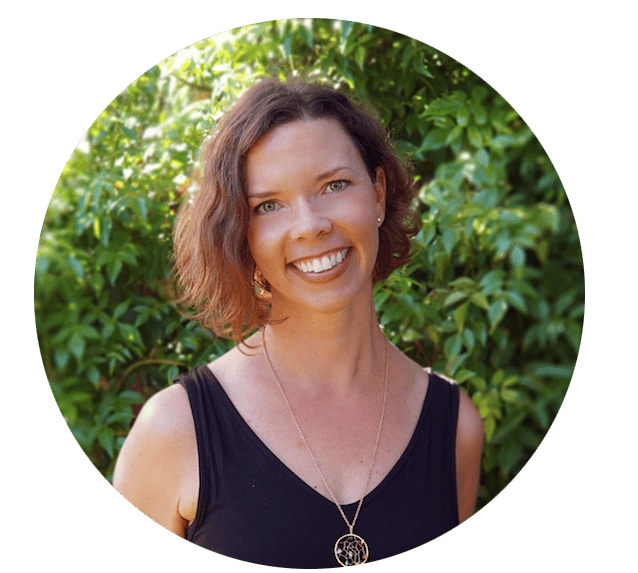
Podcast Episode #15: Cultivating Compassion Even For People We Find Difficult with Sara Schairer
I sat down with my friend and colleague Sara Schairer, who is the founder and executive director of Compassion It and a Stanford University-trained Compassion Cultivation Training teacher.
Together we explore the benefits of practicing compassion even for people who trigger us or we have a hard time relating to. We also explore the simplest ways to offer compassion to people we find it difficult to cultivate compassion for and how to tend to ourselves in that process.
Show Notes
- How Sara defines compassion — and how naturally that comes to us when we witness people “like us” suffering. (1:30)
- How we “other” people unconsciously (and sometimes consciously) and what happens in our brains when we do. (2:50)
- What Wayne Dyer once said on The Ellen Show about the power of teaching children to be compassionate. (4:10)
- The personal and global benefits of cultivating compassion for everyone. (5:00)
- That it’s normal to find practicing compassion toward everyone all the time a challenge — even for the Dalai Lama. (7:58)
- One key way to help overcome barriers to practicing compassion. (8:52)
- What compassion isn’t. (9:13)
- What Sara’s work with prisoners taught her about compassion and how to recognize the suffering of others. (10:34)
- What to remember when it’s not so easy to recognize someone else’s suffering. (11:28)
- How we move from holding compassion as an ideal to something more actionable — and why we should want to. (12:43)
- A good way to train your brain to be more compassionate toward people we find more difficult. (14:09)
- How compassion gives us the power to shift even the trickiest relationships — and the ripple effect that causes in the world. (18:04)
- The importance of tending to yourself when in the presence of other people’s suffering. (18:54)
- The best place to start — the simplest first step — to practice compassion. (23:00)
- The difference between being present to another person’s suffering vs. trying to fix the situation — and why that’s important. (23:34)
- More simple gestures we can all make to cultivate compassion in our hearts and in our lives. (24:54)
- Sara’s 30-Day Compassion It Challenge
- Sara’s Compassion Training for Busy People
- Thupten Jinpa’s book: Fearless Heart: How the Courage to Be Compassionate Can Transform Our Lives
- Kristin Neff’s book: Fierce Self-Compassion

Podcast Episode #14: Needing to Belong & Its Impact On Our Relationships
We explore our human need to belong, how vulnerable that makes us feel, and the really good news that there are simple steps all of us can take to access genuine feelings of connection and belonging any time we need them. We also take a look at why our sense of belonging often gets blocked and how to notice when it’s happening so we can find our way back to the truth that we matter.
Show Notes
- How important connection and belonging are to our survival (and happiness!) as humans (even if we fail to recognize it). (:36)
- A beautiful quote that speaks to our interrelatedness from Martin Luther King Jr. and reveals:
- A surprising truth about depending on more than half the world before leaving the house for work in the morning. (1:31)
- How peace on earth hinges on our ability to recognize how interrelated we are. (2:29)
- How connection impacts our health and longevity. (2:47)
- Why it’s so vulnerable (and sometimes even painful) to realize how much we need connection. (3:10)
- A beautiful poem by the Persian poet Hafiz that articulates how we long to belong. (4:23)
- Two paths we can all take to feel our connectedness and our belonging. (5:05)
- The important truth you must know – that a feeling of connection is always available to you. (6:17)
- Our human tendency toward “othering” and how it blocks our sense of connectedness. (6:33)
- Michelle’s story of a rental car return gone awry that may inspire you to practice kindness and compassion when your suffering exceeds your resources. (7:21)
- Michelle’s story of an unlikely bond she shared with a stressed-out stranger in an airport (someone who she initially judged). (10:17)
- Relative vs. absolute love (according to Norman Fischer) and which one is always available to us, regardless of our relationship status. (13:20)
- The tens and hundreds of thousands of people who include you in their well wishes and are rooting for you in ways that you may never have realized. (13:40)
- A favorite poem of Michelle’s by Julia Ferhenbaucher called Hold Out Your Hand. (15:00)
- What to ask instead of “Am I good enough” and a powerful reminder that you matter and are needed. (15:42)
- Poet, Julie Ferhenbacher, reading Hold Out Your Hand.
- Zen teacher, Norman Fischer’s book Training in Compassion.
- Sebene Selassie’s book You Belong: A Call for Connection.

Podcast Episode #13: Freeing Ourselves & Our Relationships from People-Pleasing with Micki Fine, M.Ed., L.P.C.
I sat down with Micki Fine, M.Ed., L.P.C., founder of Mindful Living and certified Mindfulness-Based Stress Reduction teacher for more than 20 years. She’s taught mindfulness and loving-kindness meditations in private practice and other places, including Rice University, M.D. Anderson and the Jung Center. She is the author of The Need to Please: Mindfulness Skills to Gain Freedom from People Pleasing & Approval Seeking and someone I find absolutely inspiring to talk to. Together, we explored the need to “people-please,” where it comes from, its impact on our relationships and how to free ourselves (and our relationships) from it.
Show Notes
- The need to please doesn’t mean something is wrong with us – it arises from our normal, hard-wired desire to be loved, to belong and to be safe. (2:25)
- When people-pleasing becomes a problem. (3:48)
- Why chronic people pleasing doesn’t actually work in the long run. (4:56)
- Conditions that often create chronic people-pleasing, why it isn’t our fault and it can absolutely be overcome. (6:12)
- The truth that chronic people pleasers need to learn. (8:07)
- How chronic people pleasing further disconnects us from our own worthiness of love. (8:23)
- What stress-reduction research says about how we perceive our ability to handle threats and why it’s relevant to people pleasing in our relationships. (9:47)
- Micki’s personal journey of unlearning that she always had to “be good” to keep herself safe. (11:14)
- Michelle’s gilded cage of having to “be nice” and why she prefers being kind instead. (13:06)
- How to know if we’re in chronic people-pleasing mode – the hallmark signs to notice. (14:52)
- When we are disconnected from who we are, we don’t enter fully into our relationships. (16:04)
- How chronic people-pleasers can begin to see ourselves and our loveliness again. (23:09)
- How perfectionism is embedded in people-pleasing and a helpful mantra to remember when we’re struggling to be perfect. (25:53)
- How mindfulness can help us cultivate the four heart qualities. (27:19)
- What to do when you receive negative push-back from people who aren’t used to you asking for what you want. (31:29)
- What happens when we open to our inner loveliness and can bring our true selves into our relationships. (42:57)
- Compassion for Couples: Building the Skills of Loving Connection, an online journey led by Michelle beginning July 13.
- The Need to Please: Mindfulness Skills to Gain Freedom from People Pleasing & Approval Seeking book by Micki Fine
- A video of Micki reading her children’s book: May All People and Pigs Be Happy
- More programs from Micki at www.MindfulLiving.org

Podcast Episode #12: Building Connection With Gratitude & Appreciation
We explore how easy it is to let negative emotions skew our perspective about someone we’re in a relationship with and how intentionally practicing gratitude and appreciation can change everything. And a simple formula for expressing appreciation to counterbalance negative interactions and build connection.
Show Notes
- The ideal ratio of negative and positive interactions for a healthy, well connected relationship according to Dr. John Gottman. (:37)
- Our human tendency to pay more attention to negative interactions than positive ones – and how that impacts relationships according to Dr. Rick Hanson. (1:23)
- How important it is to love and be loved with flaws – and what that allows for in a relationship. (2:14)
- How to keep a balanced view of our partner – and why that’s so important. (2:36)
- The downward relationship spiral I see so many couples get stuck in. (3:17)
- What the broaden-and-build theory says about how our negative or positive emotions impact what we notice about our reality – and our relationships! (3:40)
- A story about the sun, the wind and a man wearing a jacket that illustrates how we respond to negative and positive emotions. (5:32)
- How to practice gratitude to counterbalance negative emotions and build connection. (7:11)
- A simple way to shift the positivity ratio in your relationship. (7:40)
- A good formula for expressing appreciation. (8:36)
- When a stranger called me out on how I accept compliments – and why it’s stuck with me. (9:05)
- One key thing to do if you want to experience more love in your life. And it works whether you’re in a romantic relationship or not! (10:06)
- Compassion for Couples: Building the Skills of Loving-Connection a 6-week online journey with Michelle Becker, LMFT and Megan Prager, M.A. Utilizing the skills of mindfulness and compassion, this program teaches couples how to build a strong and healthy foundation for your relationship, and provides couples the skills to help navigate the difficulties that arise within us and between us.
- Love 2.0: Finding Happiness and Health in Moments of Connection, a book by Barbara L. Fredrickson, Ph.D.
- Just One Thing: Developing a Buddha Brain One Simple Practice at a Time, a book by Rick Hanson, Ph.D.

Podcast Episode #11: How to Balance Giving
and Taking in Relationships
We explore the importance of each partner striking a balance between giving and taking in well-connected relationships. If by nature, you tend to be kind and generous, and often find yourself depleted by your relationships with others, you may find this podcast really speaks to you. And, if you’ve been more of a taker in your relationships, you might be surprised to discover how you (and your relationships) will benefit when you adopt a more balanced approach.
Show Notes
- What the Buddhist culture refers to as near enemies and far enemies of the qualities you want to cultivate to have healthy, well connected relationships. (:50)
- Pity – a good example of a “near enemy” of compassion – and why it only masquerades as kindness in relationships. (1:18)
- What idiot compassion (another good example of a “near enemy” of compassion) is and why it’s important to avoid it. (2:02)
- Adam Grant’s research that looks at personalities at work through three lenses: “givers, takers and matchers” – and who the data shows are most and least successful. (2:49)
- What natural givers can do to relate better to takers and avoid being taken advantage of or depleted in relationships. (4:01)
- Why the book The Giving Tree isn’t an example of true altruism, but of pathological altruism that doesn’t actually benefit anyone. (4:46)
- How common it is to be taught that ignoring one’s own needs is virtuous and the trouble it can cause in our relationships. (5:38)
- Why well connected relationships depend on each partner showing up not just as a generous giver, but as someone who has needs, too. (6:13)
- What to do when you’re over-giving in your relationship(s) to create a better balance between giving and healthy selfishness. (8:11)
- Whose responsibility it is to make sure we get cared for inside our relationships. (You might be surprised by the answer.) (8:34)
- What to do if you’re a habitual taker in your relationship(s) to create that same healthy balance. (9:15)
- Compassion for Couples: Building the Skills of Loving Connection, a first-of-its-kind online program designed to help us meet ourselves and our partner with greater awareness and compassion
- Give and Take: Why Helping Others Drives Our Success by Adam Grant

Podcast Episode #10: Cultivating Acceptance
in Relationships with Tim Burnett
I sat down with certified mindfulness and compassion teacher Tim Burnett who is the Executive Director and founder of Mindfulness Northwest and an ordained Zen priest. Together, we explored the important role of acceptance in relationships, what it is and isn’t — and how it relates to curiosity, vulnerability and intimacy. We also talked about our natural human tendency to want to fix things when relationships get tangled vs. the wisdom of accepting what is.
Show Notes
- The obvious and not so obvious layers of acceptance. (1:57)
- How practicing acceptance in our relationships does not mean being a robot with no opinion of our own. (2:28)
- The deeper meaning of acceptance that invites us to better understand how people are diverse and different. (3:26)
- How acceptance sparks curiosity and diminishes the “toxic certainty” that occurs when we feel a little too sure of what’s going on with someone else. (4:09)
- Tim tells the powerful story of when bestselling author Steven Covey (mis)judged a dad and his unruly, misbehaved kids in the subway. (7:35)
- The big question Tim asks himself whenever he finds himself being too judgmental. (10:31)
- How the choice to engage with others in a way that allows for curiosity and possibility can change the dynamic of a relationship. (10:12)
- What it feels like in the body to be in a place of judgement vs. acceptance and compassion. (11:04)
- How the Zen teaching “study your suffering” shows us our human reactivity doesn’t have to be a problem to solve. Rather, is information we can use. (11:38)
- How accepting ourselves with our strengths and all our rough edges supports us in our relationships. (12:38)
- How becoming aware of the other person’s struggle is such a powerful opportunity to connect, but can also lead to us wanting to rush in and fix them. (13:44)
- Where acceptance fits in when we find something someone does insulting or difficult. (17:12)
- How acceptance and resistance fits in with some of the harms happening in our society these days. (18:44)
- How when harm is “in the room” practicing fierce compassion is more appropriate than practicing the softer, more accepting side. (21:46)
- Why “ouch” is such important feedback in our relationships. (23:32)
- How to accept a person but still set a firm limit on behavior we’re not okay with. (24:27)
- How our own patterns interfere with us being able to show up in a really true and authentic way in our relationships. (26:13)
- Brene Brown’s vulnerability paradox, which is “I feel safer when you’re vulnerable with me and when I’m not vulnerable with you.” (29:40)
- How vulnerability is the heart of intimacy that allows us to be really seen and accepted by people. (30:04)
- When the people we’re in relationship with know we will accept them, it’s easier for them to be closer to us. (31:42)
- What Michelle’s story about the two porcupines has to teach us about acceptance and vulnerability. (31:54)
- How important it is for humanity and for our world that we keep working toward acceptance, openness, curiosity and vulnerability. (35:09)
- Compassion for Couples: Building the Skills of Loving Connection, a first-of-its-kind program designed to help us meet ourselves and our partner with greater awareness and compassion (MARCH & MAY sessions)
- Three Keys to Mindfulness by Tim Burnett
- Radical Compassion: Learning to Love Yourself and Your World with the Practice of RAIN by Tara Brach

Episode #9: How Values Support Relationships with Dr. Steve Hickman
I sat down with Licensed Psychologist, Dr. Steve Hickman, who is the founder of University of California at San Diego’s Center for Mindfulness and Executive Director at the Center for Mindful Self-Compassion. Together, we explored the important role core values play in relationships, including how to identify your core values, what to do when you and your partner aren’t aligned on core values, and how supported and loved you can feel when your partner supports your core values. Importantly, we also look at how discovering and honoring the values that make for a happy and healthy bond in your relationship can lead to a more satisfying relationship.
Show Notes
- What core values are and why they’re important (1:55)
- Examples of core values (2:24)
- What core values are excellent predictors of and why (3:26)
- How to distinguish your core values vs. society’s values (3:58)
- What happens in relationships when one partner’s values are different than the others (5:32)
- The danger of looking to our partner to fulfill our values – and what to do instead (7:00)
- How to find points of alignment or shared values in relationships even when you don’t align on everything (9:26)
- Tools couples can use to explore their individual and shared values – and why that’s so important (17:18)
- When to have the conversation about shared values and when to practice self-compassion first (20:51)
- Key questions to ask your partner to gain a better understanding of your individual and shared values (22:02)
- Steve’s story about how identifying the underlying core values of a disabled roofer moved him from a depressed state of stuckness into his (unlikely!) dream job (23:45)
- The wisdom of the old saying “Careful what you wish for, you may just get it!” (32:04)
- How loved we feel when our partner knows our core values and supports us in going for them, even when it’s not a shared value (35:48)
- What we can do when we don’t feel supported by our partner in our core values (37:27)
- How to start with self-compassion when tending to a relationship wound – and why that’s so empowering (39:17)
- Compassion for Couples: A 6-week online journey with Michelle Becker and Megan Prager
- Mindful Self-Compassion (online course coming soon!)
- The Mindful Self-Compassion Workbook by Drs. Kristin Neff and Chris Germer
- The Happiness Trap: How to Stop Struggling and Start Living by Russ Harris

Episode #8: Releasing Stress and Cultivating Wellbeing
In episode 8 we explore moving from a state of stress (or DISTRESS) into one of kindness and wellbeing as we close out a really challenging year and set intentions for the new one.
Show Notes
- Why we’re in a heightened state of stress (actually, distress) and the impact it’s having on our relationships. (0:47)
- What happens in our minds and bodies and when we feel threatened. (2:04)
- What Viktor Frankl says about the space between stimulus and response and how we can use it to foster choice in any situation. (2:54)
- When I was overcome with fear and how I moved into wellbeing. (5:42)
- The power of pausing, the opportunity it presents and what it uncovers. (7:26)
- What we can remember (and do!) when a family member or relation triggers us with behavior we don’t like. (8:18)
- One way to practice cultivating loving kindness toward others and yourself. (9:29)
- Taking kindness with you as you go about your day.
- The power of seeing the positive and its potential impact on ourselves and our world. (12:24)
- A question to ask yourself as we move into the new year and why setting an intention for loving kindness matters. (13:00)
How to Train a Wild Elephant: And Other Adventures in Mindfulness by Jan Chozen Bays
When Things Fall Apart by Pema Chodron
Lovingkindness: The Revolutionary Art of Happiness by Sharon Salzberg

Episode #7: Forgiveness with Margaret Cullen
I sat down with licensed psychotherapist and Certified Mindfulness-Based Stress Reduction Teacher, Margaret Cullen, M.A., LMFT, who was one of the first 10 people to be certified as a Mindfulness-Based Stress Reduction Teacher. She is Founding Faculty of the Compassion Cultivation Training program, developed at the Center for Compassion and Altruism Research at Stanford Medical School. For 20 years Margaret has been pioneering mindfulness-based programs and she also offers inspiring workshops on forgiveness. Together, we explored what forgiveness is and isn’t, who it most benefits, and most importantly, how to cultivate forgiveness for yourself and others.
Show Notes
- Why many of us are harboring resentment toward others right now and why forgiveness feels so out of reach. (1:24)
- What forgiveness is and why it’s especially important now. (1:48)
- Thinking of forgiveness as clearing the cache on your heart’s hard drive. (2:15)
- Misconceptions about forgiveness that can make people want to avoid it. (3:35)
- The benefit that WE get from being the one to forgive. (4:38)
- What one super-forgiver’s story can teach us. (6:20)
- How normal it is to forgive in a moment but then find ourselves back in a state of unforgiveness – and what to do. (7:51)
- Is forgiveness just a spiritual bypass to make sure we don’t have to feel the messy feelings around unforgiveness? (9:12)Touching the pain that’s deeper than the anger as an important step in the forgiveness process. (9:45)
- How anger can actually serve us in the forgiveness process — and when it doesn’t. (10:40)
- A simple process to help us deliberately move from anger into forgiveness when forgiveness isn’t coming naturally. (14:45)
- The fierceness of true forgiveness and how it relates to fierce compassion. (20:03)
- Self-forgiveness and recognizing our own limitations as the doorway to common humanity. (25:30)
- The critical difference between self-indulgence and self-forgiveness (28:57)
- How to move through shame on the way to self-forgiveness (30:14)
- Why forgiveness is even more critical than trust when it comes to having a happy relationship (34:02)

Episode #6: Teaching Kids Resilience Skills with Lorraine Hobbs
I sat down with Lorraine Hobbs, founding director of the Youth, Family & School-based Programs at the University of California, San Diego Center for Mindfulness. where she develops mindfulness-based curricula for parents, teens and children and has been a pioneer in the area of self-compassion for teens. We explored how to notice the effects of stress on the kids in your life and offer them fun and useful tools for reducing it – tools that have also been shown to help children improve focus, self-control and academic performance, increase their ability to resolve conflict and improve their overall sense of wellbeing. (And they work for us grown-ups, too!)
Show Notes
The parable of the prickly porcupine and how it reflects the way families are living right now! (4:10)
The practice of rainbow breathing, which is fun and stress-relieving for adults and kids alike! (7:08)
How to introduce mindfulness practice to kids (without the eyerolls) (8:45)
What to do when kids are acting out (11:00)
How to (and not to) help kids name their emotions — and what happens when we do (12:47)
When not to use practices and what to do instead (13:08)
How mindfulness helps support impulse control (16:14)
The story of the 9 year old with the puzzled look (16:49)
The upstairs brain + the downstairs brain (20:41)
The inner bully vs. the superhero (22:46)
The power of a simple question (26:13)
How to know when a mindfulness practice needs to be adapted to be safe for kids who are or have been in a traumatic situation (27:05)
The zombie walk (28:40)
- A Friend in Me: Adventures in Mindfulness. Empathy & Kindness for Kids & Parents course for parents by Lorraine Hobbs
- May All People and Pigs Be Happy loving kindness book for kids by Micki Fine
- How To Tame the Tumbles working with affect regulation book by Eileen Beltzner
- Superhero Therapy book for teens by Janina Scarlet

Episode #5: Compassion for Parents with Dr. Susan Pollak
I sat down with practicing psychologist Dr. Susan Pollak, MTS, Ed.D., founder of the Center for Mindfulness and Compassion at Harvard University, and author of the Psychology Today blog and Self-Compassion for Parents: Nurture Your Child By Caring for Yourself. We explored why it’s particularly hard to be a parent right now and how self-compassion is the key to both feeling better and parenting better, too. The advice she gives to parents applies to anyone who feels like they have to control everything right now, but are failing and who needs to extend a little kindness to themselves.
Show Notes
Common challenges facing parents and kids right now. (2:50)
The impact these challenges are having on parents and how self-compassion can help. (5:10)
The most common mistake parents tend to make that actually doesn’t help us parent or feel any better. (7:46)
A mantra to use when other people’s social media posts make you feel like they and their kids are somehow holding it together and smiling. (8:15)
What to do when our tendency to compare and feel inadequate creeps in. (8:43)
My own memory of my response to my three kids when they were little and used to complain about the dinner I was cooking. (I hadn’t thought of this in years!) (13:35)
The self-compassion break for parents that you don’t have to close your eyes for and that you can practice right in the midst of your loud, messy life. (14:07)
Why the research shows it’s okay for parents (and kids) to NOT do all the things sometimes and just play. (21:19)
A practice to help parents (or people!) who feel like they’re grasping for control in these uncertain times to find some much-needed resilience. (22:45)
- Self-Compassion for Parents by Dr. Susan Pollak
- Center for Mindfulness and Compassion at Harvard University

Episode #4: Fierce Compassion with Dr. Kristin Neff
I sat down with Kristin Neff, PhD, who is an Associate Professor of Educational Psychology at the University of Texas and a pioneer in the field of self-compassion research, having conducted the first empirical studies on self-compassion more than 15 years ago. We explored fierce compassion, the subject of her forthcoming book. We cover what it is, how to practice it from a place of love – even when you feel angry or critical – and why it’s exactly what our relationships, our communities and our world needs now more than ever.
Show Notes
- What self-compassion is and why it’s important for you and your relationships. (1:30)
- How practicing self-compassion is a U-turn from how we normally treat ourselves. (1:52
- How our culture doesn’t encourage self-compassion. (2:40)
- Why self-compassion is important to sustain compassion for others. (3:22)
- What research says about the role of self-compassion in relationships. (4:07)
- Why relying on our partner to meet all of our needs doesn’t work — and what to do instead. (4:41)
- How compassion for ourselves and our partner leads to more forgiveness and compromise (5:40)
- Compassion’s two sides – fierce compassion and its softer counterpart – and why we need both (7:00)
- How we “gender” the two sides of compassion and the problems that causes (10:56)
- Why women need to claim their fierce side (11:30)
- How men are harmed by being expected to disown their softer side (12:02)
- Why we really need fierce compassion at this time in history — and how to practice it from a place of love and caring (15:30)
- How to tell when we need compassion’s fierce side or softer side in our relationship (16:28)
- Why anger is important and we need to honor it — and what happens in our relationships when we don’t (18:11)
- How to work with anger and what it is often protecting (19:30)
- The unexpected ease of practicing self-compassion (27:05)
- The Yin and Yang of Self-Compassion: Cultivating Kindness and Strength in the Face of Difficulty audio CD by Kristin Neff
- The Mindful Self-Compassion Workbook: A Proven Way to Accept Yourself, Build Inner Strength, and Thrive by Kristin Neff and Chris Germer

Episode #3: Strength & Vulnerability in Resilient Relationships
We’ll explore the two sides of compassion – the strong side and the soft, vulnerable side – and how both are needed to create truly resilient relationships. You’ll discover what each side offers you and your relationships, which one you personally need to cultivate more of and how best to discern which side to show in any given moment.
Show Notes
- An exercise inspired by Buddhist teacher, Joan Halifax, that will help you to feel into your strong side and your softer side, to recognize the value of both sides in helping to be able to be truly present in our relationships, and to notice which side you need to cultivate more of to create resilience in your life and your relationships. (1:03)
- What the strong side of compassion brings to our lives and our relationships (it doesn’t tolerate harm, can set boundaries and says no, to name a few.) Why it’s so important and what it makes possible. (2:52)
- What the soft side of compassion brings to our lives and our relationships (it comforts us when we’re suffering, creates connection, validates our feelings and allows us to be seen and to see others, to name a few.) Why it’s so important and what it makes possible. (3:48)
- Easy ways to tell when there’s too much strength and not enough softness in how you are relating to yourself and others. What happens in our lives and our relationships when that imbalance occurs. (4:08)
- Easy ways to tell when there’s too much softness and not enough strength in how you are relating to yourself and others. What happens in our lives and our relationships when that imbalance occurs. (5:18)
- A way to feel into whether you tend more toward strength or vulnerability and which side you need to cultivate more of to create resilience in your life and your relationships. (6:00)
- What Drs. Kristin Neff and Chris Germer of the Center for Mindful Self-Compassion teach us about the Yin and Yang sides of compassion. (8:09)
- How the strong back doesn’t tolerate harm, sets limits and boundaries to keep us safe. (9:09)
- How the soft front allows us to be comforted and soothed (11:12)
- The great misconception that compassion is about feeling good (hedonic pleasure), when it’s actually about wellbeing (eudaimonic pleasure). (12:36)
- The best way to discern whether to use your strong back or soft front in any given situation. (13:57)
- The difference between Wise compassion (or true compassion) and Idiot compassion. (14:29)
- The 3 quintessential questions to ask in any given moment so you will know when to offer the strong back or the soft front to yourself or someone you care about. (14:37)

Episode #2: The Antidote to Shame
With special guest Dr. Chris Germer
I sat down with Chris Germer, PhD, clinical psychologist and lecturer on psychiatry at Harvard Medical School who co-developed the Mindful Self-Compassion program, to explore the trickiest human emotion (shame) that most people don’t realize is having an impact on their ability to relate well to others. We cover how to recognize it and release yourself (and your relationships) from its often painful grip.
Show Notes
- Telltale signs that we or a loved one are in a state of shame, which we often mistake for anger, depression or avoidance (4:24)
- The relationship between anxiety and shame, and how to spot the difference (10:12)
- What someone really wants when they’re in shame, even if it doesn’t seem like it (13:48)
- How to diffuse shame in the moment and practice compassion for yourself and others as a lasting antidote to shame (14:10)
- The best way to avoid having to be a bottomless pit of empathy to someone in shame (16:00)
- What to do when someone else’s shame threatens to become contagious (17:09)
- Three ways shame paradoxically tricks us into believing the worst of ourselves (18:01)
- How to see the innocent and universal wish to be loved in our loved one and in ourselves (22:44)
- How relationships can help us heal from shame (27:00)
- The most important gift we give to ourselves and our relationships when we can recognize and release ourselves from shame (30:24)
- The Mindful Path to Self-Compassion: Freeing Yourself from Destructive Thoughts and Emotions by Christopher Germer
- Center for Mindful Self-Compassion resources page
- Free Meditation Guided by Dr. Chris Germer: “Compassion for Self and Others” Audio | Written Instructions

Episode #1: Responding Rather Than Reacting In Relationships
With host Michelle Becker, LMFT
We’ll explore the common experience of getting stuck in our threat defense system during moments of stress or conflict inside our relationships. If you’ve found yourself arguing, defending your position, criticizing, blaming, withdrawing, leaving, or placating (or being on the receiving end of those behaviors) this episode offers helpful perspective on what is really going on when that’s happening AND simple practices to shift the dynamic quickly.
Show Notes
- The three systems all of us use (sometimes without realizing it) to regulate our emotions, and what happens in our relationships when we get “stuck” in one system or another. (1:01)
- How to know which system you tend toward during moments of conflict or stress and when it’s more helpful to shift into another one. (6:07)
- The biggest mistake we make when someone we’re in a relationship with is blaming, shaming, criticizing, fixing or controlling us — and what that behavior is really a sign of. (8:11)
- The most important thing to understand about someone you’re in a relationship with and how that understanding changes everything. (8:32)
- Why it can be even trickier to regulate emotions inside our closest relationships. (9:06)
- The one thing we all really want from another person when we’re having a hard time. (12:06)
- The surprising role that compassion for yourself and others plays (and what it makes possible!) when it comes to regulating your emotions and skillfully dealing with the emotions of others.(12:30)
- A practice to support you in disengaging from reactive behavior, tending to your own needs and responding to your loved ones in alignment with your core values. (13.17)
- Mindful Compassion: How the Science of Compassion Can Help You Understand Your Emotions, Live in the Present, and Connect Deeply with Others by Paul A. Gilbert, Kunzang Choden
- Mindful Self-Compassion Workbook by Kristin Neff and Christopher Germer

